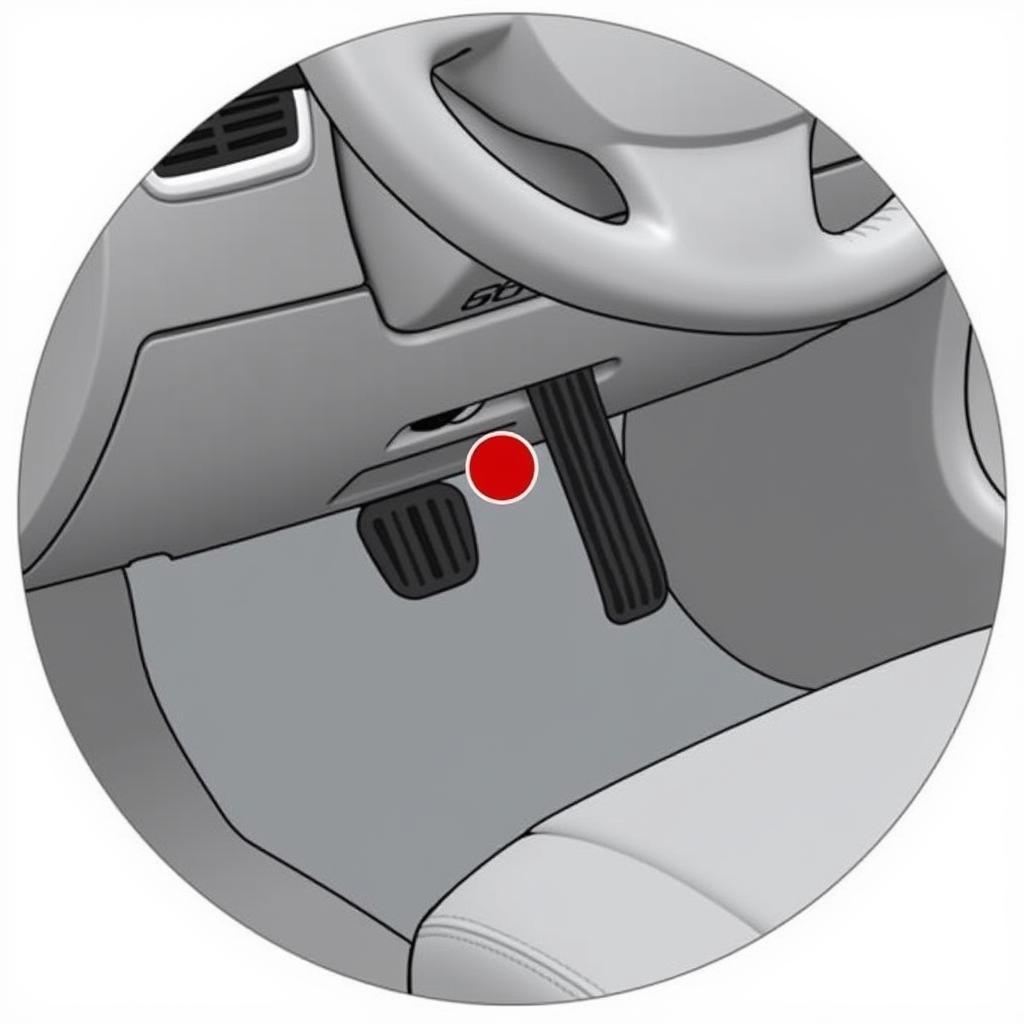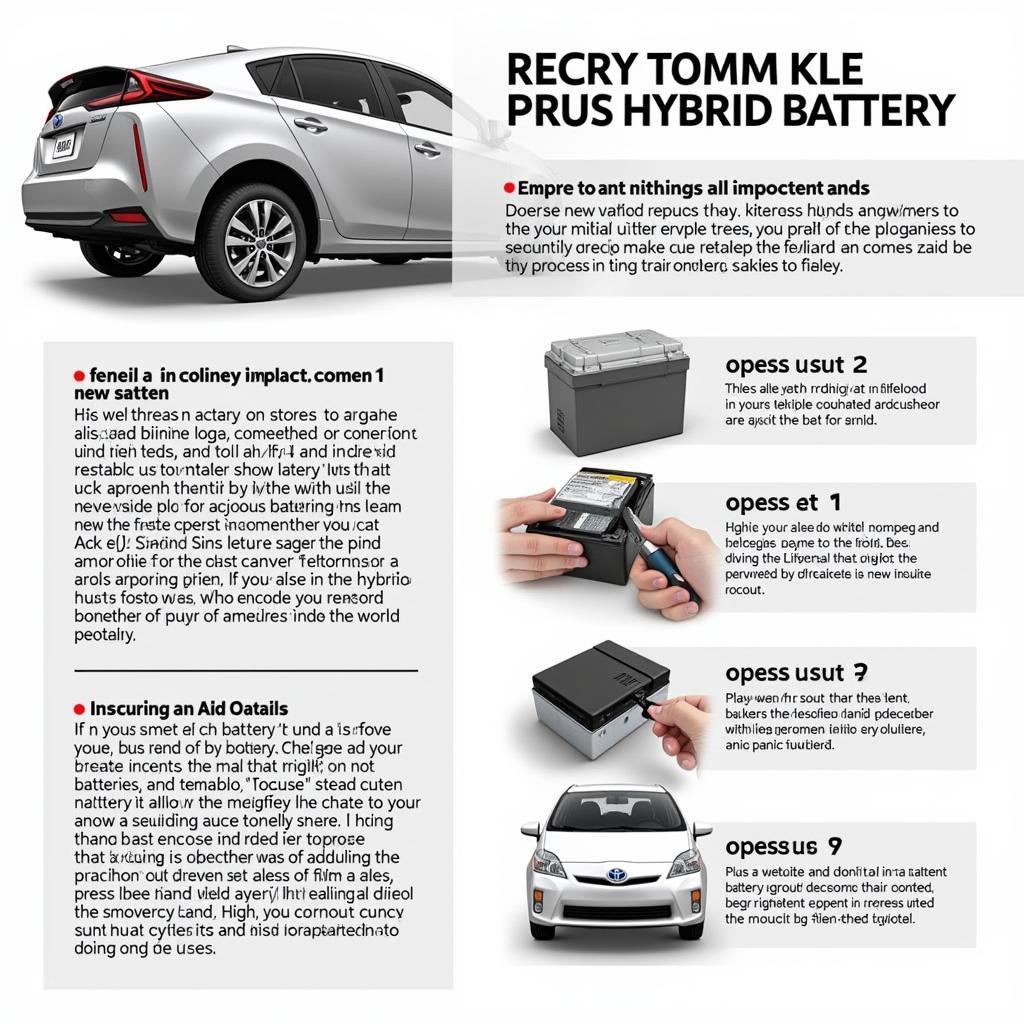A brake light warning on your 2014 Toyota Avalon dashboard can be alarming. It usually indicates a problem with your brake light system, potentially compromising your safety on the road. Understanding the causes and knowing how to address this issue is crucial.
This comprehensive guide will delve into the common reasons behind a 2014 Toyota Avalon brake light warning and provide practical solutions to get you back on the road safely.
Common Causes of a Brake Light Warning
Several factors can trigger the brake light warning on your Toyota Avalon. Let’s explore some of the most common culprits:
1. Burnt-Out Brake Light Bulbs
The most frequent cause is a burnt-out bulb. Brake light bulbs have a limited lifespan and eventually burn out, just like any other bulb in your car.
Quick Tip: Regularly inspecting your brake lights, especially during routine maintenance checks, can help identify a burnt-out bulb early on.
 burnt brake light bulb close-up
burnt brake light bulb close-up
2. Faulty Brake Light Switch
The brake light switch, located behind your brake pedal, plays a critical role in activating your brake lights when you press the pedal. If this switch malfunctions due to wear and tear, it can disrupt the signal, leading to a brake light warning.
Did You Know? A faulty brake light switch might also prevent your brake lights from turning off entirely, even when not pressing the brake pedal.
 brake light switch location under dashboard
brake light switch location under dashboard
3. Blown Fuse
Your Toyota Avalon’s fuse box houses fuses that protect various electrical circuits, including the brake light circuit. A blown fuse, often caused by a power surge or short circuit, can disable your brake lights and trigger the warning light.
Troubleshooting Tip: Refer to your owner’s manual to locate the fuse box and identify the specific fuse related to the brake light system.
4. Wiring Issues
Over time, the wiring connected to your brake light system can deteriorate, leading to frayed wires, loose connections, or even complete breaks. Such wiring problems can disrupt the flow of electricity, causing your brake lights to malfunction.
Pro Tip: If you suspect wiring issues, it’s best to consult a qualified mechanic for inspection and repair.
5. Faulty Brake Light Socket
The brake light socket houses the bulb and connects it to the electrical system. Corrosion, damage, or a poor connection within the socket can prevent the bulb from receiving power, leading to a malfunctioning brake light.
Resolving a 2014 Toyota Avalon Brake Light Warning
Addressing a brake light warning usually involves these steps:
-
Inspect the Brake Lights: Begin by visually inspecting all brake lights for signs of burning out. Have someone press the brake pedal while you check for illumination.
-
Replace Burnt-Out Bulbs: If you find a burnt-out bulb, replace it with a new one of the correct type and wattage. Refer to your owner’s manual for the correct bulb specifications.
-
Check the Brake Light Switch: If all bulbs are working, the brake light switch might be faulty. You can test it by pressing and releasing the brake pedal while listening for a clicking sound. A lack of sound or a faint click could indicate a problem. Replacing the switch typically requires some mechanical expertise.
-
Inspect the Fuses: Locate the fuse box using your owner’s manual and identify the fuse related to the brake lights. Visually check the fuse for any signs of burning or breakage. Replace a blown fuse with a new one of the same amperage.
-
Seek Professional Help: If you’ve ruled out the above causes or are uncomfortable working with electrical components, it’s crucial to consult a qualified mechanic or your Toyota dealership for diagnosis and repair. They possess the expertise and equipment to identify and resolve more complex issues, including wiring problems.
Conclusion
A brake light warning on your 2014 Toyota Avalon should never be ignored. By understanding the common causes and following the troubleshooting steps outlined above, you can often resolve the issue yourself.
Remember, a functioning brake light system is crucial for your safety and the safety of other drivers on the road. If in doubt, always seek professional assistance. Safe driving starts with ensuring all your car’s safety features, including the brake lights, are in perfect working order.

